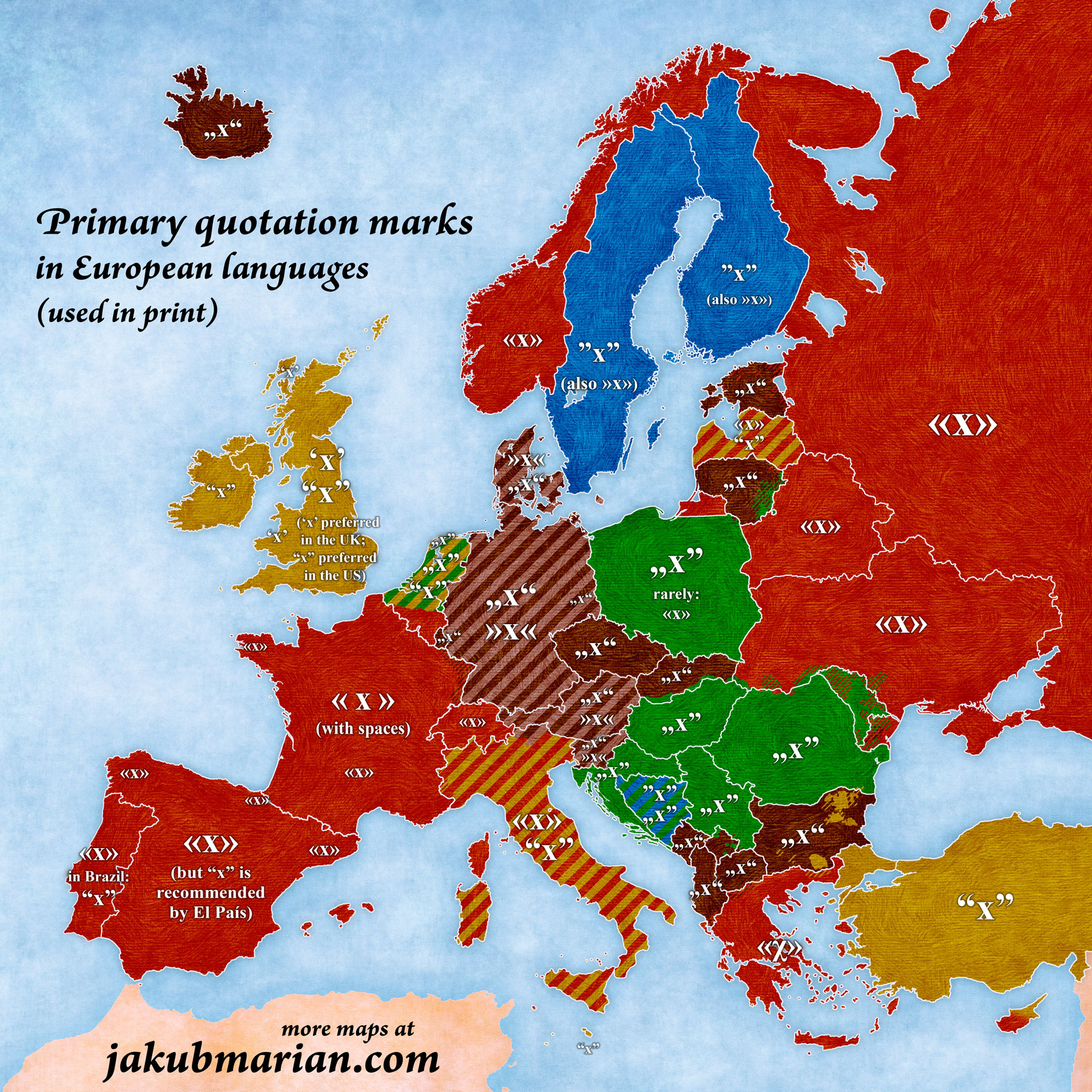...but I don't think that's common usage, so I went to the webpage of the spanish monarchy and, behold! comillas inglesas in the first bit I see. I'd be willing to say outright that angular quotation marks aren't the quotation marks of the Spanish language, not even in Spain. As it often happens, the RAE be pissing outside of the pot.
I just read :
https://jakubmarian.com/map-of-quotatio ... languages/ , which agrees, saying :
This practice has become especially common in Italy and the Netherlands, where the English style is common even in print media. Spain is likely going to follow suit, since the English style is recommended by El País, the second most circulated Spanish newspaper. In most other countries, the English style is still considered bad typography (but commonly used on blogs and forums).
A quick look at
https://elpais.com/america/ confirms; one finds only “” , and no «» .
Nevertheless,
https://jakubmarian.com/map-of-quotatio ... languages/ has a cool map that clarifies what the geographic groupings are :

EDIT: oh, right, as for the OQ, I found I sample I had written maybe a few months ago amongst my papers and they look like this.
The link is broken.
aesthetically, 「I really like the japanese comillas」.
I do too, but not as quotation marks, but in place of square brackets [] or round brackets ().
...
As a honorable mention, there's also the usenet quoting style (
https://en.wikipedia.org/wiki/Usenet_quoting ), which I still use somewhat often because most email servers seem to use it by default. (Also, 4chan probably inherited this quoting style from usenet.)
Code: Select all
>What did you eat today ?
I ate an apple.
Most interestingly, this is probably the oldest european quotation style. I read "Shady Characters" recently (
https://www.amazon.com/Shady-Characters ... 0393064425 ), and its gives examples where monks wrote a > (technically a "diple"
https://en.wikipedia.org/wiki/Diple_(textual_symbol) ) outside the margin to the left of the line that is a quotation. (Furthermore, I wonder if the german style »« is partially descended from this style...)
Spacing with an empty line before and after the quote (and indentation), as blockquotes do today, was not done. I suspect it's because parchment was too valuable to waste with empty space, hence why monks also washed parchment to reuse it. (Aside : The only extant physical copy of some of Archimedes' works is on a parchment that was later washed and reused for church texts, so reading the original text requires ignoring the most salient top layer of text.) (
https://en.wikipedia.org/wiki/Archimedes_Palimpsest )



